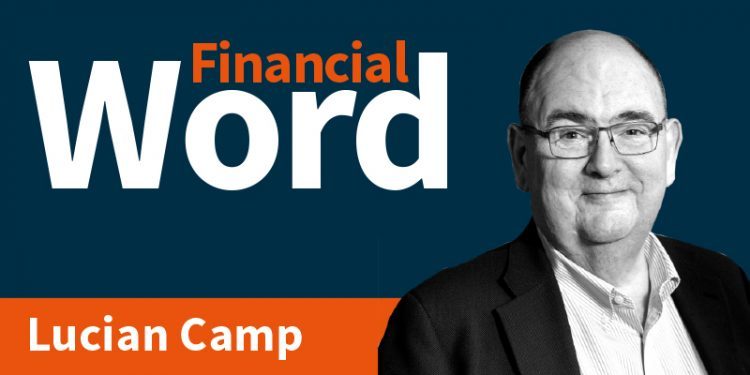Lucian Camp examines the problems the major players in the financial services sector face when it comes to creating a differentiated brand.
You won’t find me denying that for those of us on the agency or consultancy side, phone calls from prospects are a good thing. And if they’re phone calls from very large prospects with very large, urgent brand development challenges, then they must surely be a very good thing indeed.
Well, perhaps not. Up at the very top end of the market, there’s a group of very large, complex financial services providers who, quite frankly, scare the hell out of me. This group includes the so-called ‘big four’ high-street banks; a bunch of huge global banks, asset managers and others operating largely in wholesale or corporate markets; and a few large, complicated
and again international insurance groups.
That nightmare phone call goes something like this – ‘Ah, Lucian, I think we may have something for you. We’ve decided, this time we’re serious about this brand business.
Yes, really serious. Genuinely different. Built from the inside out, reflected right across the customer experience, all those things you’re always going on about. Whatever
it takes. Money no object. No, it’s not a pitch, just tell us how you want to tackle it.
Starting as soon as – straight away, if possible.’
I expect you’re wondering why this is a nightmare. Au contraire, you’re thinking, this is the opportunity of a lifetime – the kind of project any self-respecting brand consultant dreams of…but there is a problem, and it’s a big one. It’s not going to work.
A BROAD BRUSH
In organisations like these, the starting point is that there’s nothing there. There is no significant differentiation, just a huge variety of business practices, cultures and values randomly scattered across the firm’s operations around the world. About the best you can do is to land on a single, fairly generic attribute – as Barclays has, for example, with innovation – and set
about trying to reflect it across all parts of the business. Even this is difficult to achieve – I wonder if bank customers really perceive Barclays as more innovative than other banks. But more importantly, a strong brand is much more than a reflection of a single, fairly generic attribute.
It’s far easier for smaller, simpler and younger organisations to build very strong and clearly differentiated brands in the marketplace, and those brands can drive lots of nice profitable consideration and preference on the part of their target consumers.
Start-up businesses, unencumbered by history, or legacy, or internal silos, or past reputational damage, or politicking among the management team, have the best opportunities of all. Bearing in mind that as we all now agree, financial services brands are built overwhelmingly through experience and therefore largely from the inside out, it’s easy to see how you go about tackling the task if, say, you’re recruiting a hundred or two enthusiastic and optimistic young people to come and work in a single space.
But what the hell do you do if you’re Barclays, or RBS, or Lloyds Banking Group, or HSBC, or UBS, or Citi, or Aviva, or Zurich? If you’re a hundred thousand people, in scores of business units, spread across dozens of countries?
BACK TO BASICS?
Building a brand from scratch is like getting a camera, some film, a script and some actors, and making a movie. Trying to backfit a brand identity onto a big, disparate, complicated organisation is like picking up a boxful of film clips shot by someone else and editing them together into a coherent whole.
All of this goes to explain why brand is one of the (relatively few) business assets that are infinitely much more available to smaller, simpler, younger businesses than they are to their big, complicated competitors. Which, I must say, makes it odd that so few of the former choose to make anything much of it.
I’m pretty sure it also goes to explain why Lucian Camp Consulting isn’t likely to receive a brand development brief from one of those big scary giants any time soon. But that’s okay.
Ultimately, I’m happier taking on projects where there’s at least some chance of success.

